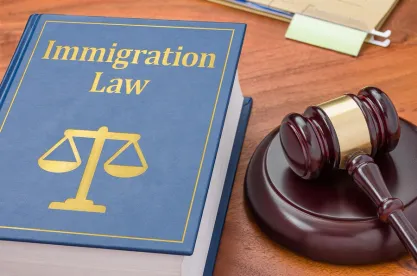The recent tragic events in Paris, France have moved Congress and the Administration to seriously consider changes to the Visa Waiver Program (VWP). The VWP permits citizens of 38 countries to apply for entry to the United States as a visitor, without first obtaining a visa. On Dec. 8, 2015, the House of Representatives passed H.R.158, the Visa Waiver Program Improvement and Terrorist Prevention Act on a vote of 407-19. Similar legislation, S.2337, the Visa Waiver Program Security Enhancement Act, has been introduced in the Senate. Additionally, on Nov. 30, the Administration announced a series of new changes to the VWP, outlined here.
The House bill, H.R.158, amends Section 217 of the Immigration and Nationality Act to make “terrorism risk” an explicit factor that the Department of Homeland Security (DHS) must consider under the electronic system for travel authorization (ESTA). Additionally, H.R.158 requires reporting to Congress by DHS on information related to individuals denied travel to the United States under ESTA, or whose eligibility had been revoked during the prior year. The bill also requires DHS to report on foreign government information sharing and travel patterns for its nationals.
The Senate bill, S.2337, would require individuals from VWP participant countries who had traveled to Syria or Iraq in the past five years to obtain a traditional tourist or business visa, which would require an in-person interview, and submission of biometric information. Should such a requirement be enacted, this will be a potentially significant consideration for businesses operating internationally in reliance on the VWP. The bill would require VWP travelers to submit biometric information such as fingerprints and a photograph prior to traveling under the program. Finally, the legislation would require enhanced intelligence sharing between VWP countries and the United States.
The changes to the VWP that are being considered have broad international implications. On Dec. 3, in the midst of significant attention from lawmakers and swift action by the Administration, the European Union’s ambassador to the United States sounded a note of caution about moving too fast and too far with changes to the program. Congress is faced with the challenge of balancing critical national security interests and the benefits of travel, tourism, and international commerce facilitated by the VWP that is of interest to many countries around the globe.
Nevertheless, it is conceivable that changes to the VWP could come to pass during the busy final days of the 114th Congress’ first session. The House has overwhelmingly passed H.R.158, and the Administration acted quickly following the events in Paris to strengthen the program. Congress must pass an omnibus appropriations bill before it adjourns for the year, and current reports suggest that VWP changes are under discussion for inclusion in the end of year spending bill currently being negotiated. Businesses that rely on the Visa Waiver Program should monitor closely activities in Congress leading up to the final resolution of the end of year spending legislation. GT will closely follow these legislative and administrative initiatives to restrict use of the VWP and will provide updates.


 />i
/>i
